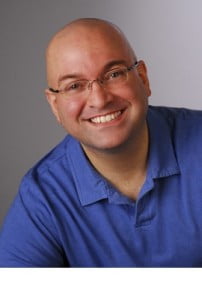 “Every composer knows the anguish and despair occasioned by forgetting ideas which one had no time to write down.” – Hector Berlioz
“Every composer knows the anguish and despair occasioned by forgetting ideas which one had no time to write down.” – Hector Berlioz
If you have a learning challenge that affects the way your brain processes information here is a truth that you MUST accept if you are ever to lead a full life. Ready?
Your brain is unreliable. I’ve met countless of my fellow autism spectrumites who have fallen into the trap of immaculate perception – the belief that their perception is in some way infallible and everyone else is wrong.
At one time I found myself in a similar trap and do you know where I ended up? Alone, that’s where.
The fact is, no brain, whether its workings have a label or not sees everything. We miss things either when we’re stressed, tired, scattered or whatever the reason.
For many of us (myself included) scattered is our default setting. We can either see ourselves as victims or see our circumstances as a miraculous opportunity to be resourceful.
I had a conversation recently with a young man who struggles with forgetfulness at the level I do. He forgets homework assignments, forgets test dates and forgets what he was asked to do a few minutes ago by his parents. He’s been accused of laziness, apathy, stupidity and poor motivation.
The real reason he and I are so forgetful is very poor working memory. A simple definition of working memory is the ability to remember how to do something at the moment you need to do it. For example, giving me three steps to follow then asking me to follow them won’t work. My working memory won’t hold that much information. Instead, giving me one step with time to finish it then giving me the next step guarantees better results. Make sense?
One strategy that will guarantee failure is to act as though you can overcome this challenge by pretending it doesn’t exist. This young man believed that trying harder to remember was the key. Tell a blind man to try harder to see and if the world doesn’t come into view its because he isn’t trying hard enough.
Our life depends upon a reliable memory to be successful in life. We have emails to return, calls to make, appointments to keep and a world filled with people who will only forgive “I forgot” so many times before moving on from you and on to someone more reliable.
So what do you do?
First you MUST own it. Own that your memory issues are a part of your DNA and not some character defect of which you should be ashamed.
Second embrace technology. I owe my productivity in part to the use of no cost solutions including Google Calendar and Wunderlist.
I’m going to be opinionated here and say that if you have a scatter brain then you are doing yourself a tremendous disservice by not investing in some sort of a smart phone.
Traditional paper lists are fine if you member to carry them with you, but it is a rare event that Smartphone owners leave their homes without them. With resources like the ones I’ve mentioned you can sync them automatically to your phone so your list is always with you.
Each of these has the capability to add a reminder that interrupts you to tell you to remember. Here’s the exciting part. Any of these lists can be shared with others so they can add reminders to it.
Imagine your teacher adding a reminder to complete an assignment or your spouse adding a reminder to pick up something at the store and adding it to your existing grocery list.
This technology gives us a new way to collaborate with the people in our lives to help us remember more effectively.
My life would be in complete disarray without my phone buzzing to remind me of an appointment with a client, a call I have to return or an errand I have to run.
Motivation to make things happen isn’t enough when you have a scatterbrain. You MUST have the tools to turn your motivation into meaningful action.
An artist can only produce art with the tools to get her vision into the world.
We can best remember when we partner with technology and the people in our lives to help us remember in more subtle ways than standing over us life a domineering parent or boss.
These are a few recommendations that help us take greater ownership of our lives and put us on the path to the level of self-determination we deserve.
Please share some of the resources that help you remember more effectively.
Thanks for being you.
“Do you like what you’ve read here? Please share it and leave a comment below.”
About Brian R. King
Brian R. King LCSW (ADHD & ASD Life Coach) is a #1 Best Selling Author, 25-year cancer survivor, adult with Dyslexia, ADHD, and Asperger’s. He’s also the father of three sons on the autism spectrum. He is known worldwide for his books and highly engaging presentations that teach the power of connection and collaboration. His strategies empower others to overcome their differences so they can build powerful and lasting partnerships. His motto is: We’re all in this together.
